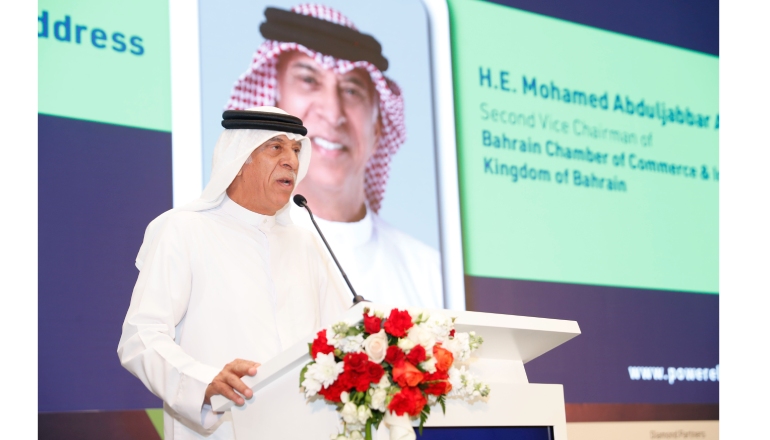The recent POWERELEC conference in Bahrain highlighted the country’s unwavering commitment to achieving net-zero emissions.
As the event’s conference partner, WriteCanvas is particularly happy to be part of the Kingdom’s transformation journey.
The three-day event’s theme was “Bahrain’s Net Zero Ambition: Unfolding Renewables, Green Hydrogen for a Sustainable, Decarbonized Economy.”
It brought together industry leaders, policymakers, and experts to discuss innovative solutions and strategies for a sustainable, decarbonized future. With a focus on renewable energy (solar power), green hydrogen, and cybersecurity, the conference highlighted the critical role of collaboration and technological advancements in fulfilling Bahrain’s Vision 2030.
The conference, inaugurated by H.E. Mohamed Abduljabbar Alkooheji, the second vice chairman of the Bahrain Chamber of Commerce and Industry (BCCI), underscored the critical role of the private sector in the country’s renewable energy transition. Renowned speakers from the industry discussed various initiatives to accelerate this shift, emphasizing the importance of incentives, partnerships, and innovation.
Key highlights of the conference included:
Government Support: Eng. Ebtisam Isa Al-Shenoo, Chief, Industrial Operations Section, Ministry of Industry and Commerce, highlighted the importance of incentives to encourage industries to adopt renewable energy.
Industry Recommendations: Mr. Basim Al-Saie, Board Member, Bahrain Chamber and Chairman, GITHAA- Bahrain Food Holding Company -BFHC presented eight industry recommendations, including EV adoption and a thrust on renewable energy infrastructure.
Renewable Energy Transition: In a session titled “Renewable Energy Transition: The Toolkit for Success for Bahrainis,” H.E Jassim Al Shirawi, Secretary General Elect, International Energy Forum (IEF) and Chairman & Managing Director, JAIS Energy Services underscored the need for energy transformation in the current era. Mr. Imed Derouiche, CEO of H2G Green Hydrogen, Tunisia elaborated on the role of hydrogen in this transition.
Cross-Border Energy Trade: In the first panel, “Transforming the Renewable Energy Landscape: Innovation, Partnerships, and Opportunities for Grid-Scale Energy,” the keynote speaker Dr. Husain Almakrami, Assistant Professor, Renewable Energy Yanbu Industrial College, Royal Commission for Jubail and Yanbu, Saudi Arabia, discussed new opportunities for cross-border energy trade and innovation in the renewable energy sector.
Energy Storage: The second panel, “Embracing Mega Trends in Intelligent Energy Storage Solutions in the Middle East,” moderated by Hinde Liepmannsohn, Executive Director, Middle East Solar Industry Association (MESIA), delved into challenges and innovations in the energy storage segment.
Financing and Execution: The conference also addressed the critical topic of “Financing and Executing the Big Ticket Projects – Challenges and Opportunities. ” The keynote speaker, Dr. Abdulla Alabbasi Director – DERASAT Energy and Environment Programme DERASAT- Bahrain Center for Strategic, International and Energy Studies, and the copanelists explored various financing options and their effective utilization.
Green Cities: On the third day, Dr. Hanan Albuflasa Professor of Renewable Energy University of Bahrain, emphasized the importance of supportive regulations for renewable energy adoption in the session “Building Green Cities: Solar Powering the Future.” The panel concluded that building green cities is a shared responsibility.
Cybersecurity: The conference concluded with a presentation on “Cybersecurity Risk Management for Renewable Energy Projects,” by Ali Beshara Cybersecurity Expert & Executive Trainer Cyber CREST, highlighting the importance of cybersecurity in the face of technological advancements.
Overall, POWERELEC Bahrain provided a valuable platform for stakeholders to discuss and collaborate on Bahrain’s net-zero ambitions, paving the way for a sustainable and decarbonized future.

